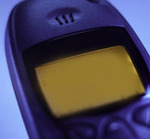Texting While Driving Study: Voice-to-Text is Not Safer

We all have one: a cell phone we keep close by throughout the day, to keep in touch with work and the people in our lives. Many of us now use smart phones so in addition to talking and texting, we have quick access to apps, cameras and other neat gadgets. The bottom line is we get more use from our mobile phones now than ever.
While the conveniences are nice, they are a negative when it comes to driving. Studies have long shown cell phone use of any type is a distraction which can result in drivers taking their eyes off the road and causing motor vehicle accidents.
Most states have some restriction on use. The District of Columbia and 39 states, including Massachusetts, ban texting while driving. Ten states and the District of Columbia ban all phone use by drivers. Massachusetts bans all cell phone use for drivers under 18.
Some say these efforts and related educational campaigns are falling short and the use of smart phones is actually increasing. The market has certainly grown dramatically. By last October, the count was over 1 billion smart phone users worldwide, according to one firm’s report. By 2015, another billion users are expected to get smart phones.
Many new users are using talk-to-text technology while they drive, but a new study finds this is not actually any safer. The study by the Texas A&M Transportation Institute was released during April’s National Distracted Driving Awareness Month. The study was the first to compare voice-to-text and manual texting.
The Study
The transportation institute studied 43 research participants driving a vehicle on a closed course. Drivers traveled the course without any cell phone use, then three more times performing texting exercises. On the first two laps, they used two different voice-to-text applications. On the third lap, they texted manually.
Researchers found driver response was significantly delayed when drivers used voice-to-text or sent text messages. In both cases, drivers took about twice as long to react as they did when they were not texting.
Manual texting required slightly less time than voice-to-text, but driver performance was roughly the same.
One theory for why is drivers who used voice-to-text had to look down at the phone after they spoke their message and check it before sending, taking their attention from the road.
Massachusetts Texting While Driving Law
The Massachusetts law which bans texting while driving is M.G.L. c. 90, Sec. 13B. It took effect Sept. 30, 2010.
Under the law, drivers in Massachusetts are banned from both texting and e-mailing while operating a car. They cannot read or browse the Internet. Voice-to-texting is not specifically addressed in the law.
Some police departments are seeking to enforce the law. In January, West Bridgewater police stopped 51 drivers over four hours on a Saturday afternoon. In March, another four-hour sting caught 43 drivers texting.
Texting while driving is a non-criminal offense which carries a $100 for the first offense, $250 for the second offense and $500 for the third.
Drivers who are texting and driving and cause injury or death can also be criminally charged under M.G.L. c. 90, Sec. 24(2)(a). Read about a recent case.

